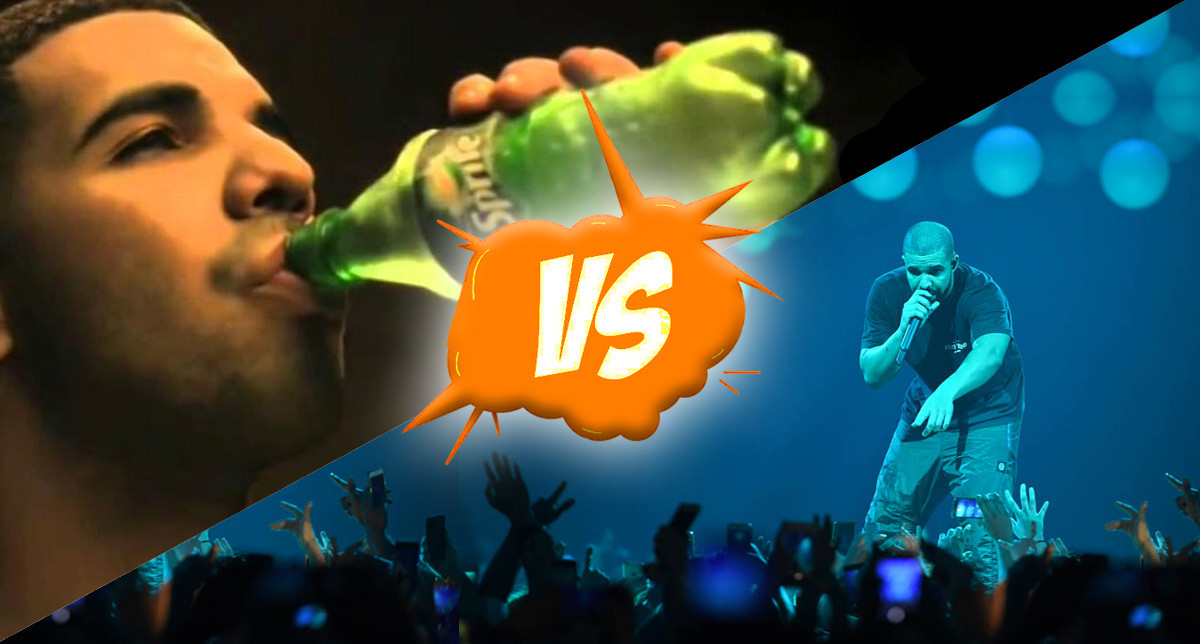
Entertainment Marketing vs. Marketing Entertainment
The two terms might seem similar but they are very different things. Entertainment Marketing (today more commonly known as “Influencer Marketing”) is a strategy that leverages influential brands and/or personalities to promote a brand/product (most often a celebrity or the new bread of “social media influencers”). Sometimes they are more intentional endorsements, e.g., Ellen, “I’m easy, breezy, beautiful, CoverGirl”, other times it’s less obvious product placement, e.g., Marky Mark pounding a Bud after saving the day. The concept is not new but has evolved over time (I’ll have a post on Influencer Marketing in the coming weeks).
As for “Marketing Entertainment”, a topic I’m often asked about, there are certainly some nuances that are unique to the entertainment space. (The following dives into live event entertainment marketing. I’ll post something soon with more focus on recorded/studio entertainment marketing).
When marketing events and/or entertainers, the strategy is to create emotional excitement. Marketing entertainment is about motivating or inspiring an audience to purchase something that they “want” vs. “need” by selling the thrill of being there to witness that once-in-a-lifetime event and be part of something larger than themselves.
Direct off of a former office wall: “Our mission is to lift the human spirit by gathering communities around exceptional live experiences. These indelible memories echo long after the last bit of confetti is swept. It’s what lights up the eyes and gives hearts something to hold onto when times are tough. Sacred moments that will never be reprised in exactly that same way.”
Marketing Venues – Most artists set shows prices the same regionally regardless of theatre, so that’s not a differentiator. You’ll focus on your venue’s “value proposition”. Why/how would the guest experience be better at your venue? I’ve been told things like “but my venue is pretty standard, other than the act itself, there’s not very much interesting about the venue.” Challenge yourself to be creative and go beyond what others are too lazy to do.
Start by finding stories to tell, the history or inspiration of the venue, the ownership, or the location. Even food vendors’ stories or recipes can provide good content. Share a time lapse of the setup before or teardown after a show. Take the tips from the “plan your visit” section of your site and make that more fun and interesting. Reproduce as infographics or videos.
Create/activate iconic areas or elements of your venue (possibly my favorite example would be the elevator at the Beacon Theater), social channel #hashtags & filters, and any other ideas to help guests create that “FOMO” feeling amongst friends/followers.
Besides shows, entertainment destinations like gaming halls or casinos have to recognize that you are not competing with other casinos, you are competing with anything else there is to do nearby. Bars, bowling alleys, etc. You sell an experience, sell it.
Marketing Shows – Again, this is purely an aspirational purchase. No one “needs” to see a show, your job is to excite and invite your guests. The perception is that most guests are looking for the best price, my experience has shown that guests are actually looking for the best value. There is a big difference. Guests want to feel like they are part of something relatively exclusive and something they can relive (and brag about) later. Pro tip: That also creates a great opportunity for organic promotion “customer endorsement” (which carries much further than your paid media efforts).
The obvious place to start is with any history the event/performer(s) might have at the venue. For example, let’s say there will be a tribute concert to someone at the exact venue where that “someone” got started. Further, let’s say that that “someone” was popular in the 1970s. The person in charge of marketing entertainment might, in addition to doing straight-up advertising of the tribute concert itself, leverage the nostalgia that fans felt 40 years ago when that first concert got started. The event could be presented as a “leisure suit and platform shoes” shindig, and guests at the event could sip 1970s wine vintages (*sponsorship opportunity) while waiters with 4-inch lapels served them.
As marketers “today”, we are lucky to be able to listen to what consumers want (in real time). We know audiences, or “fans” follow and engage directly with celebrities and brands, do a little research for your promotion strategy and see what, and who, you can leverage.
Marketing Celebrities – Despite what many may think, famous/influential people are not all the same. I used to believe that the longer someone has been “famous” the harder it is for them to hear “no”, and although that is something of a theme, there are many exceptions so be careful of that. The reason I emphasize this is, perhaps, needless to say, there is no better promotion vehicle than the artists themselves. What’s crazy is that some artists (without dropping any names) won’t promote their own show without getting paid…to promote their own show…on their own accounts!
Always ask (and try to get it in the contracts) but also try to get other celebrities to help promote, get the label to promote (and push for support from other artists on the label). Always tag the artists in your posts and get some tickets over to your local outlets to help promote. At the least, you’ll likely get support from the fans 😉
In conclusion, “Entertainment Marketing” (or Celebrity Endorsement/Influencer Marketing) can be used to “Market Entertainment” (shows/events, brands/bands/entertainers/personalities, etc.), but they are two different terms for two very different things. Entertainment Marketing is exciting (and creates the opportunity for marketing folk to mingle with celebs), but there’s a lot of fraud happening these days, so be careful. Also be careful who you align yourself with. Market Entertainment is just damn hard (super exciting) work :).























